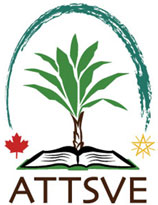Initiate and support research projects
To facilitate this networking relationship between ATVETs, research centers and both Ethiopian and Canadian universities, the project will provide separate research funding opportunities to university graduate students, faculty researchers or research center scientists interested in collaborating with ATVETs on applied research topics of relevance to the ATVETs and Ethiopian agriculture. Those interested will be asked to submit proposals for consideration outlining the applied problem they are seeking to examine, a detailed research plan to address the problem, the ATVET they will partner with, the value and impact of the proposed research to the broad agricultural sector, how the findings will be disseminated and how both the university/center and ATVETs will benefit. A mixed panel of project team members will review the proposals and communicate the decisions to the applicants. The project will then monitor the research and evaluate the effectiveness of the fund in promoting increased technology transfer and applied research between the two institutions.
The field component of the research would be expected to take place at the ATVET colleges and the research methodology and the findings must be of direct benefit to the development of the ATVETs or the agri-industry they are associated with. Any social research must have ethics approval from the appropriate Ethiopian and Canadian ethics approval boards before being initiated. This fund can support social scientists, at each university, to research issues around environmental sustainability, gender, integration of HIV&AIDS into the curriculum, participatory rural extension, studies related to language and learning, appropriate technology transfer, business development and/or entrepreneurship in rural areas, along with many other topics. At the same time agricultural scientists in Canada may want to focus on applied research related to crop or animal production, appropriate renewable energies, pest management or soil & water conservation related to Ethiopian agriculture, keeping in mind the GoE’s strategies (CRGE, GTP, etc).
The key factor will be that the research theme must be based on a problem or issue identified by the ATVETs and the methodology used and the outcome of the research must have direct benefits for the ATVETs. During PIP mission in April and June 2014, ATVET staff identified certain issues such as irrigation, termite damage and soil acidity, which they feel could benefit from further research. These areas will be considered in more depth during the implementation phase. Instructors and graduate students who embark upon research projects will be expected to find ways to disseminate the findings of their research in the local ATVETs through seminars and other public presentations as well as through local media, ICT, newsletters etc.
Taken from the ATTSVE Project Implementation Plan
Agricultural Transformation
Through Stronger
Vocational Education
Through Stronger
Vocational Education
Dalhousie University
Faculty of AgricultureInternational Office
157 College Rd
Truro, NS, Canada
B2N 5E3
In-Country Office
Sar-bet, Kirkos Sub CityKebele 08/09, House No. 1123
Ki-Ab Building, 5th Floor, Rm 17/18
Addis Ababa, Ethiopia
